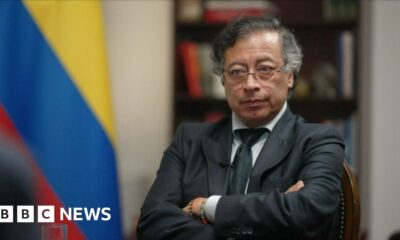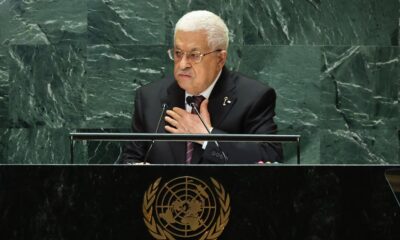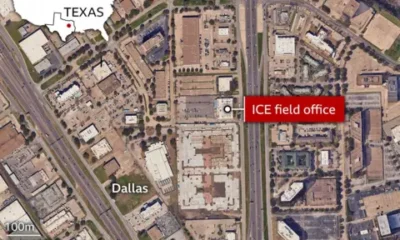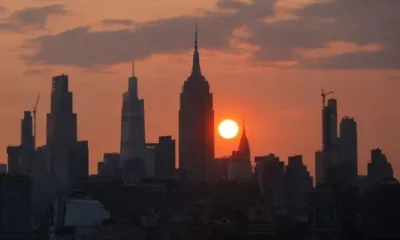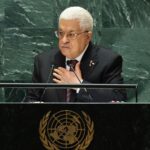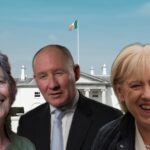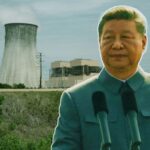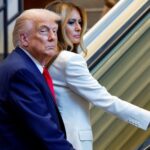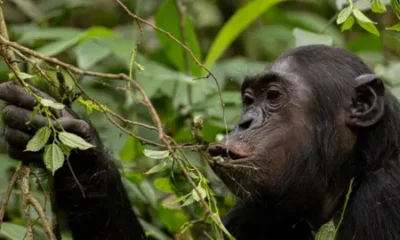Breaking News
EU official makes stark admission over Trump’s Russian oil demand
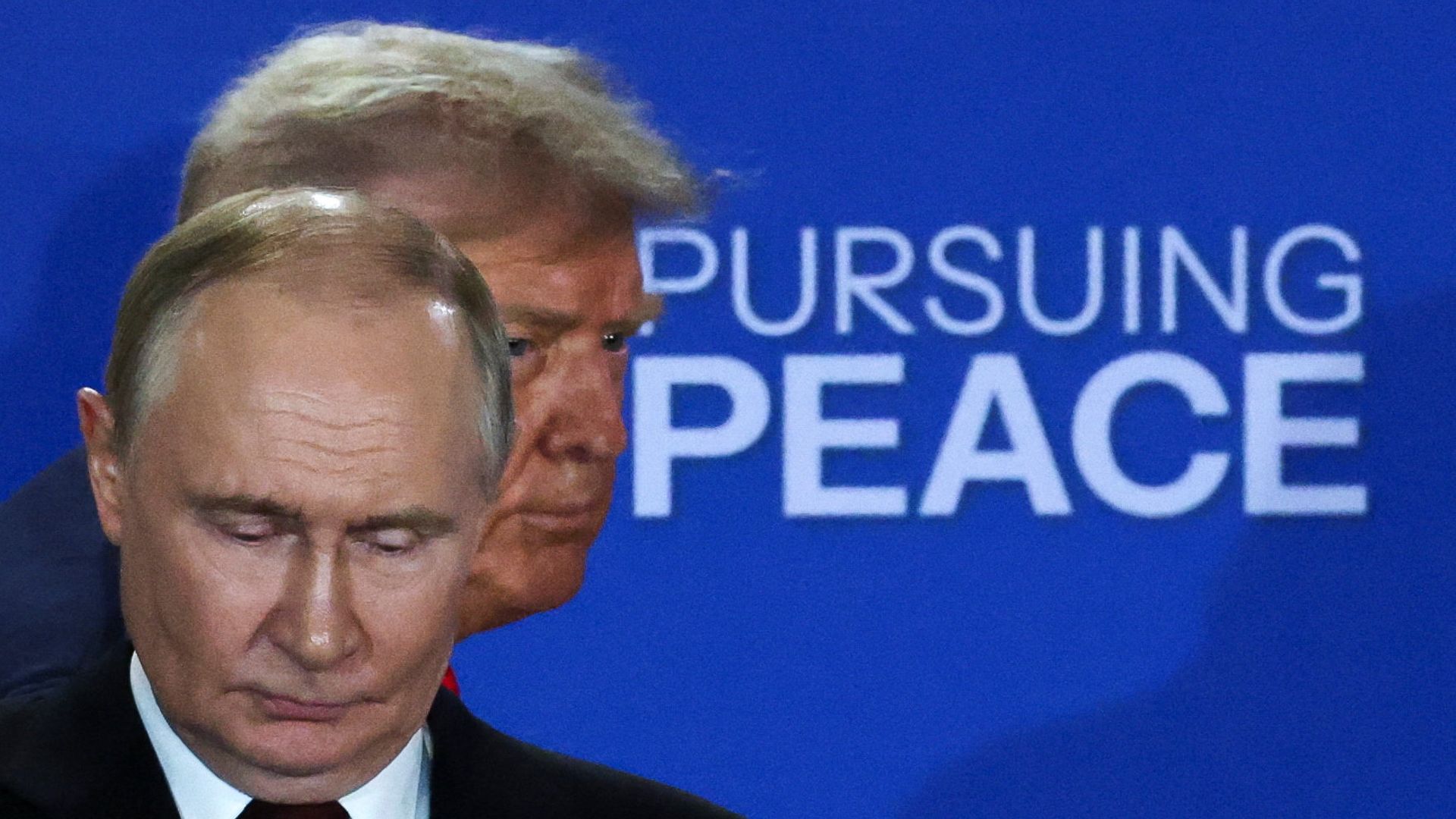
Read more on post .
Donald Trump is right that European countries should stop buying Russian oil and gas, one of the EU’s top officials has told Sky News.
Speaking on The World with Yalda Hakim, European Commission vice president Kaja Kallas said it was of “great regret” that this was still happening among some of the bloc’s member states.
The commission has proposed legislation to phase out Russian imports of its oil and gas by 1 January 2028, as Brussels tries to cut its decades-old energy relations with Moscow following Vladimir Putin’s 2022 invasion of Ukraine.
Most European countries stopped importing Russian crude oil in 2022 and Russian fuel in 2023, but crude imports by Hungary and Slovakia have continued.
Ms Kallas, who is the EU high representative for foreign affairs and security policy, said of Mr Trump‘s energy call: “Of course he has a point. I mean, we have been saying this for quite some time, that the dependency on Russian oil and gas is actually also fuelling the war.
“But you have to see that we have done a lot to diminish that, really, to get rid of Russian oil and gas. And there are a few countries who are still buying oil and also there America has leverage because they are also good friends of America.
“Neighbours around those countries have also proposed alternatives, so we can do this.”
Ms Kallas, a former Estonian prime minister, does not think NATO and EU members Hungary or Slovakia should be sanctioned, but instead they should “really build on the alternatives that neighbours are providing them to get rid of the Russian oil and gas like President Trump has asked”.
She added that “the neighbouring countries are providing or offering different alternative routes. The thing is that this oil and gas is just cheaper…”
She continued: “It is of great regret that we haven’t been able to put all these member states in the same position… getting rid of the Russian oil and gas.”
On Wednesday, Slovakia pushed back on pressure it is facing to cut back its purchases of Russian energy, saying it was ready to discuss the issue, but singled out some European states for increasing their gas purchases from Moscow.
Slovakian foreign minister Juraj Blanar said there was hypocrisy in criticising his country when liquefied natural gas purchases from Russia to Western Europe had increased by 30% over the last year.
“France, Spain, and the Netherlands… so can you see the picture is a little bit more colourful than black and white,” he said.
Read more from Sky News:
Zelenskyy’s UN speech was a warning and a plea
Trump is ‘racist, sexist and Islamophobic’, says London mayor
Donald Trump has said the US was prepared to impose energy sanctions against Russia – but only if all NATO countries stop buying Russian oil and implement similar measures.
“I am ready to do major sanctions on Russia when all NATO nations have agreed, and started, to do the same thing, and when all NATO nations stop buying oil from Russia,” the US president said on his Truth Social platform earlier this month.
And at the UN General Assembly on Wednesday, he said: “In the event that Russia is not ready to make a deal to end the war, then the United States is fully prepared to impose a very strong round of powerful tariffs, which would stop the bloodshed, I believe, very quickly.”
But for the measures to be effective, he said, “European nations, all of you gathered here, would have to join us in adopting the exact same measures.”
Energy revenues remain the Kremlin’s single most important source of cash to finance the war effort, making oil and gas exports a central target of Western sanctions.
But officials and analysts warn that aggressive curbs on Russian crude also risk driving up global oil prices, a prospect that could strain Western economies and weaken public support for the measures.
Since 2023, NATO member Turkey has been the third-largest buyer of Russian oil, after China and India, according to the Centre for Research on Energy and Clean Air.
Breaking News
Palestinian leader to address UN amid peace push
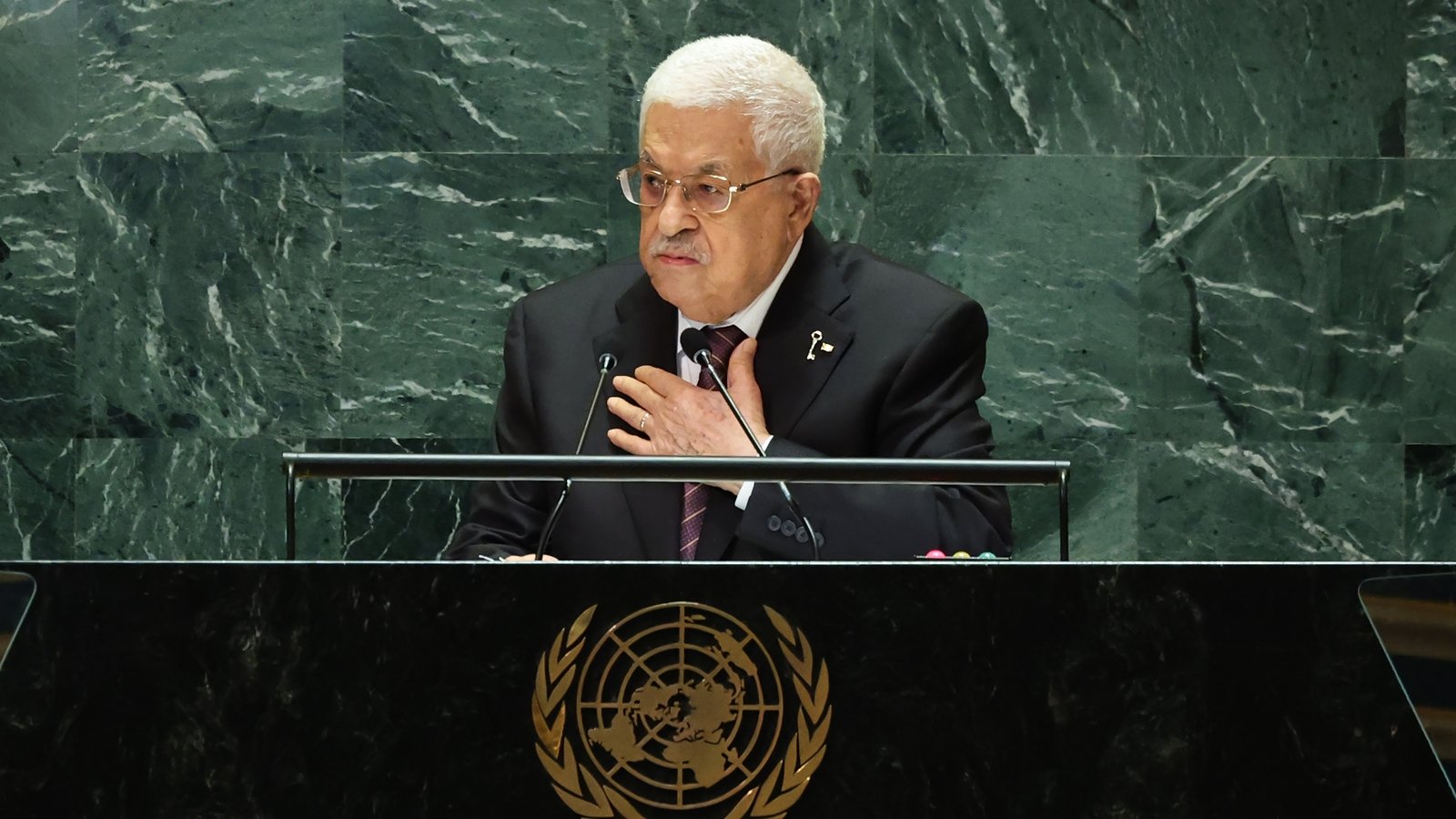
Read more on post.
Palestinian leader Mahmoud Abbas will address the United Nations virtually today as the United States, despite its opposition to him, weighs whether to try to stop Israeli annexation of the West Bank.
The 89-year-old Palestinian Authority president will address the UN General Assembly three days after France led a special summit in which a slew of Western nations recognised a state of Palestine.
US President Donald Trump’s administration adamantly rejected statehood and, in a highly unusual step, barred Mr Abbas and his senior aides from traveling to New York for the annual gathering of world leaders.
The General Assembly overwhelmingly voted to let Mr Abbas address the world body with a video message.
Israeli Prime Minister Benjamin Netanyahu has vowed not to allow a Palestinian state and far-right members of his cabinet have threatened to annex the West Bank in a bid to kill any prospect of true independence.
French President Emmanuel Macron, despite his disagreements with Mr Trump on statehood, said that the US leader joined him in opposing annexation.
“What President Trump told me yesterday was that the Europeans and Americans have the same position,” Mr Macron said in an interview jointly with France 24 and Radio France Internationale.
US special envoy Steve Witkoff said that Mr Trump, in a separate meeting with a group of leaders of Arab and Islamic nations, presented a 21-point plan for ending the war.
“I think it addresses Israeli concerns as well as the concerns of all the neighbours in the region,” he told the Concordia summit on the sidelines of the UN General Assembly.
“We’re hopeful, and I might say even confident, that in the coming days we’ll be able to announce some sort of breakthrough,” he added.
Divide on Palestinian Authority
Mr Macron said that the US proposal incorporates core elements of a French plan including disarmament of Hamas and the dispatch of an international stabilisation force.
A French position paper seen by AFP calls for the gradual transfer of security control in Gaza to a reformed Palestinian Authority once a ceasefire is in place.
Indonesian President Prabowo Subianto, one of the leaders who met jointly with Mr Trump, said that the world’s most populous Muslim-majority country was willing to offer at least 20,000 troops.
Mr Abbas’s Palestinian Authority enjoys limited control over parts of the West Bank under agreements reached through the Oslo peace accords that started in 1993.
Mr Abbas’s Fatah is the rival of Hamas, which controls the Gaza Strip, although Mr Netanyahu’s government has sought to conflate the two.
In his address on Monday, Mr Abbas condemned the massive 7 October 2023 attacks by Hamas on Israel, which has responded with a relentless military offensive.
He also called on Hamas to disarm to the Palestinian Authority.
France and other European powers, while not joining Israeli and US efforts to delegitimise the Palestinian Authority, have said that it needs major reforms.
Mr Netanyahu will address the UN General Assembly tomorrow.
Breaking News
Candidates begin canvassing in Presidential Election
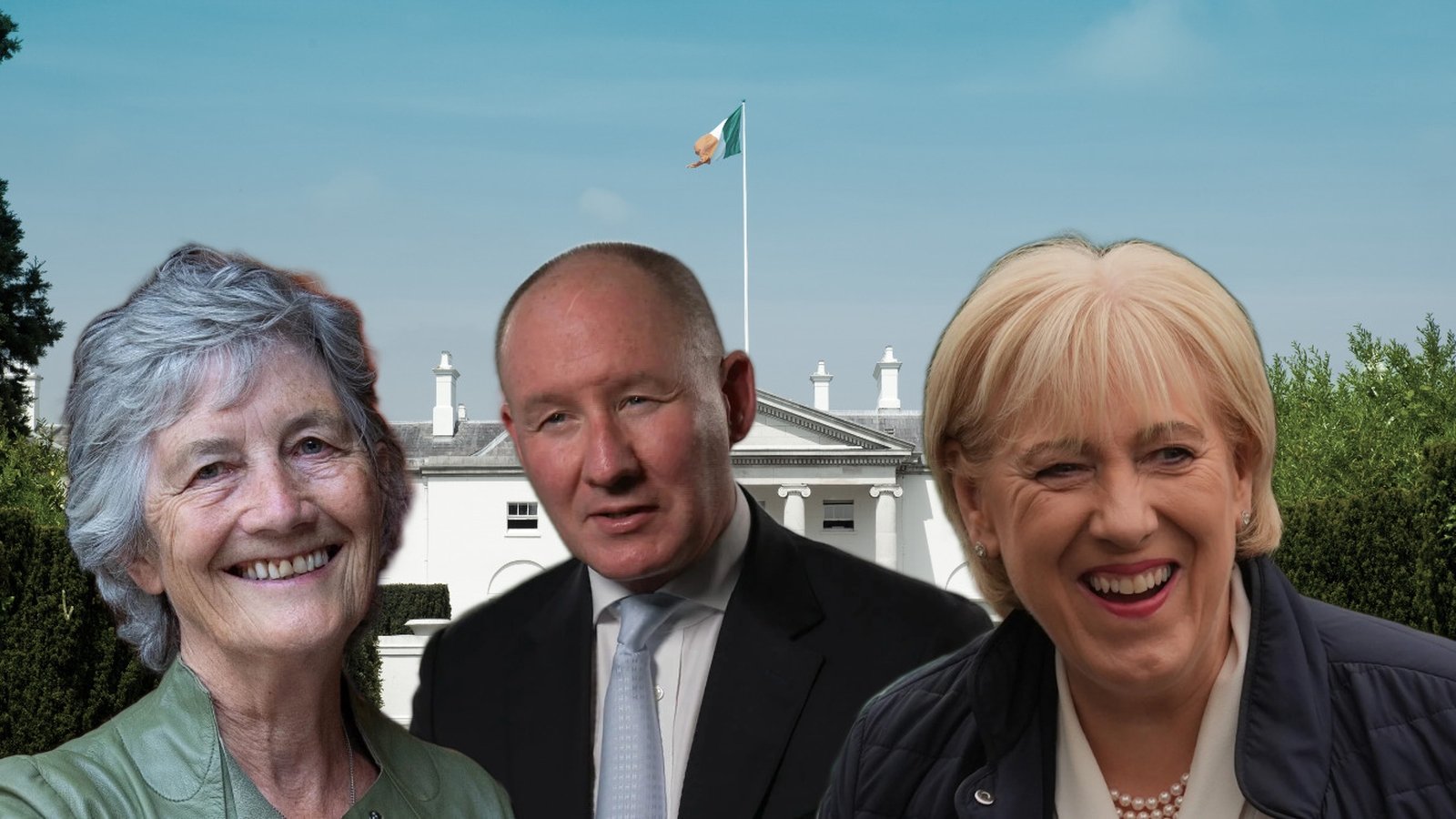
Read more on post.
In the first full day of campaigning in the Presidential Election, the three candidates will be canvassing in Dublin, Laois, and Limerick.
Independent candidate Catherine Connolly, who is backed by the left-leaning parties in the Oireachtas, will attend a meeting of the Dáil Public Accounts Committee this morning in her capacity as a TD for Galway West.
Afterwards, and as a presidential candidate, she will be campaigning in the capital, including at a rally in Harold’s Cross this evening.
The Fine Gael candidate Heather Humphreys will start her campaign today in Laois, with a lunchtime canvass in Portlaoise.
Later, she will be canvassing in Limerick City before attending a Fine Gael rally in Patrickswell.
Earlier, Ms Humphreys said housing supply is “the biggest challenge” facing the country and “very tough”, but stopped short of agreeing with outgoing President Michael D Higgins that it has become a “disaster”.
The Fianna Fáil candidate Jim Gavin will be in the capital this morning, with a canvass in Blackrock and Dún Laoghaire.
He also will be joined by party colleagues at other campaign events in south Dublin.
Barrister Maria Steen failed to secure enough support to join the race, securing 18 Oireachtas nominations when 20 was required.
After her campaign ended yesterday morning, Ms Steen told the media that “rarely has the political consensus seemed more oppressive or detached from the public’s wishes.”
However, Taoiseach Micheál Martin rejected suggestions that the failure of Ms Steen to secure a nomination was “anti-democratic”.
Voting takes place on 24 October. It is the smallest field in a Presidential Election since 1990.
Breaking News
China does targets differently to the West – and it may be just what the world needs
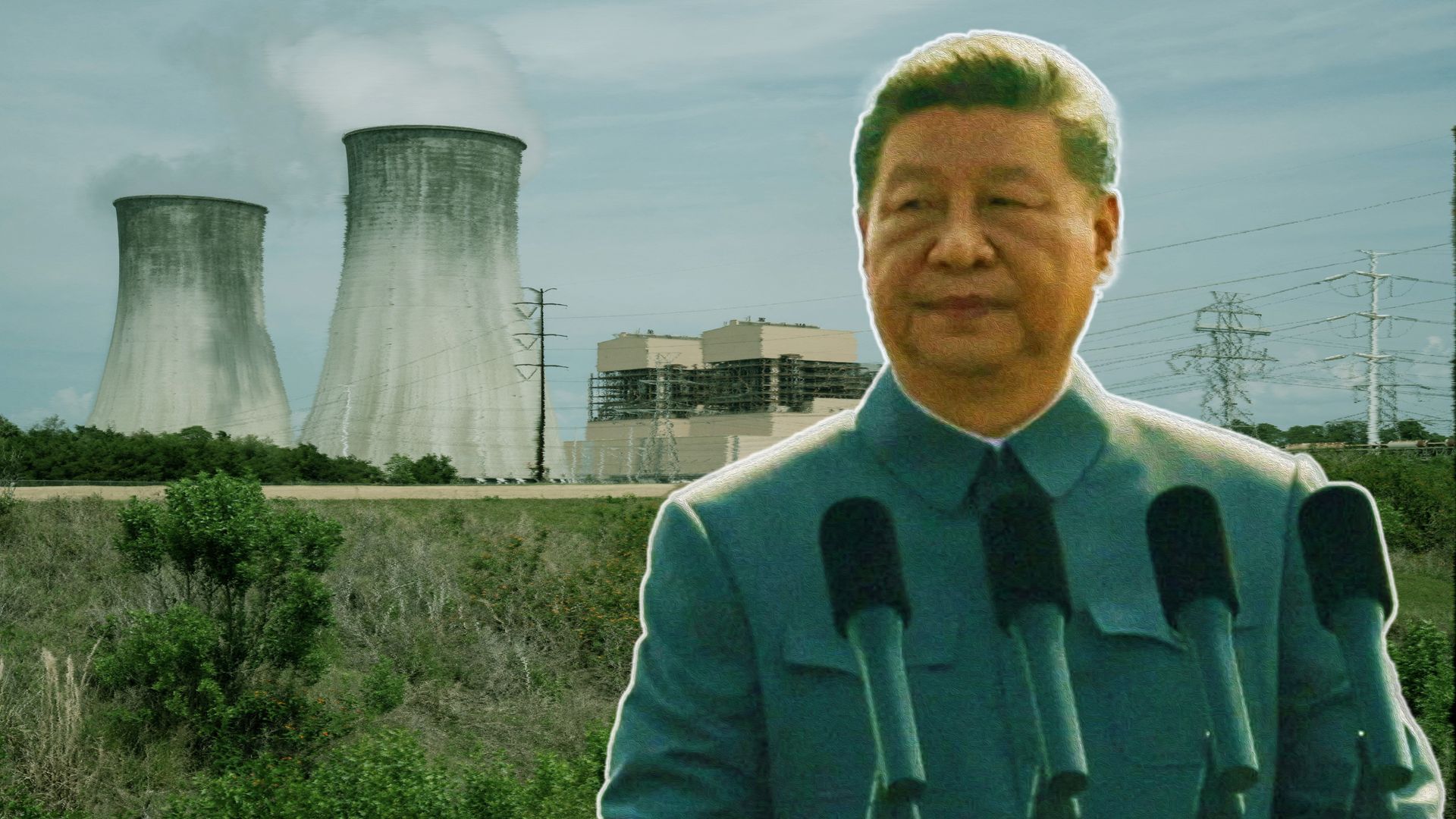
Read more on post .
There is something peculiar about the Chinese government that makes its targets very different to those in countries like Britain.
That quirk gives analysts some hope after it’s “timid” announcement on the green transition – and as Donald Trump yesterday condemned climate change as a “hoax”.
The good news is that China has, for the first time, made a commitment to cut its greenhouse gas emissions. It’s a landmark moment.
In a video statement to the UN in New York, President Xi Jinping vowed China would cut emissions by 7-10% by 2035, while “striving to do better”.
But it is still “critically short” of the roughly 30% believed to be necessary from the world’s biggest greenhouse gas polluter and clean tech superpower, analysts said.
Juan Manuel Santos, former president of Colombia and chair of The Elders, a group of global leaders founded by Nelson Mandela, said: “China’s latest climate target is too timid given the country’s extraordinary record on clean energy – both at home and through its green partnerships with emerging economies.”
Read more: Super typhoon hits China
China also chose not to say when it thinks its emissions will peak – allowing plenty of time for them to keep rising before they then fall.
But here’s why all is not lost – far from it.
In the West, targets are often aspirational. They are knowingly optimistic, sometimes wildly so, because the purpose isn’t necessarily to hit them.
Instead, they are designed to provide some certainty to investors, energy companies, local authorities and so on about where the country is headed, stimulating them all to kick into gear.
‘Taking targets seriously’
The Chinese work differently. In fact, they have a record over under promising and over delivering on climate targets.
Why?
“In China’s top-down political system, setting and evaluating targets is a key means through which the central government manages the country,” says Zhe Yao from Greenpeace Asia.
“As a result, there is a strong political culture of taking targets seriously. This mentality means policymakers usually take a realistic approach to setting targets rather than treating them as aspirations.”
Just look at their wind and solar rollout: meeting a target of 1,200GW by 2030 six years early.
Today they pledged to more than double today’s capacity of around 1,400GW to 3,600GW by 2035 – rates many countries can only dream of. There are other targets China has missed – such as to “strictly control” coal power – but still that record gives analysts hope.
Another ray of light is the fact that it was delivered by Xi himself – this is perceived as the commitment being more serious than if it was delivered by anyone else.
And “striving to better” sounds weasley, but suggests they aim to overachieve, and again should be taken more seriously from President Xi than perhaps we would from other leaders.
US and EU fall short
China is far from alone in disappointing with its pledge, made as a part of its latest five-year climate plan (known as nationally determined contribution or NDC), something all countries are doing this year as per the Paris Agreement.
The US government under Trump has ditched climate action altogether. The EU, which thinks of itself as ambitious, failed to come up with its own plan on time, effectively coming to the UN this week with an “I Owe You” instead.
With other leaders faltering, there was less heat on Beijing to step up.
Even the 10% reduction in emissions will “still put the world on a pathway to catastrophic climate impacts” says Kate Logan, director of the China Climate Hub at the Asia Society Policy Institute.
So let’s hope this target will not just be hot air, but another one for cautious China to overachieve.
-
Culture2 days ago
Taylor Swift’s new cinema outing generates more than €12million in just 24 hours
-
Politics2 days ago
European Parliament snubs Orbán with vote to shield Italian MEP from Hungarian arrest
-
Culture2 days ago
Milan Fashion Week 2025: Unmissable shows and Giorgio Armani in mind
-
Opinion2 days ago
Fintan O’Toole: How can you live with the knowledge that you have facilitated mass murder?
-
Culture3 days ago
Marvel stars Mark Ruffalo and Pedro Pascal stand up for Jimmy Kimmel as Disney boycott intensifies
-
Health3 days ago
EU renews support for WHO’s Universal Health Coverage Partnership
-
Opinion2 days ago
AI Is Pointless If It Doesn’t Boost Productivity
-
Environment1 week ago
Chimps drinking a lager a day in ripe fruit, study finds






